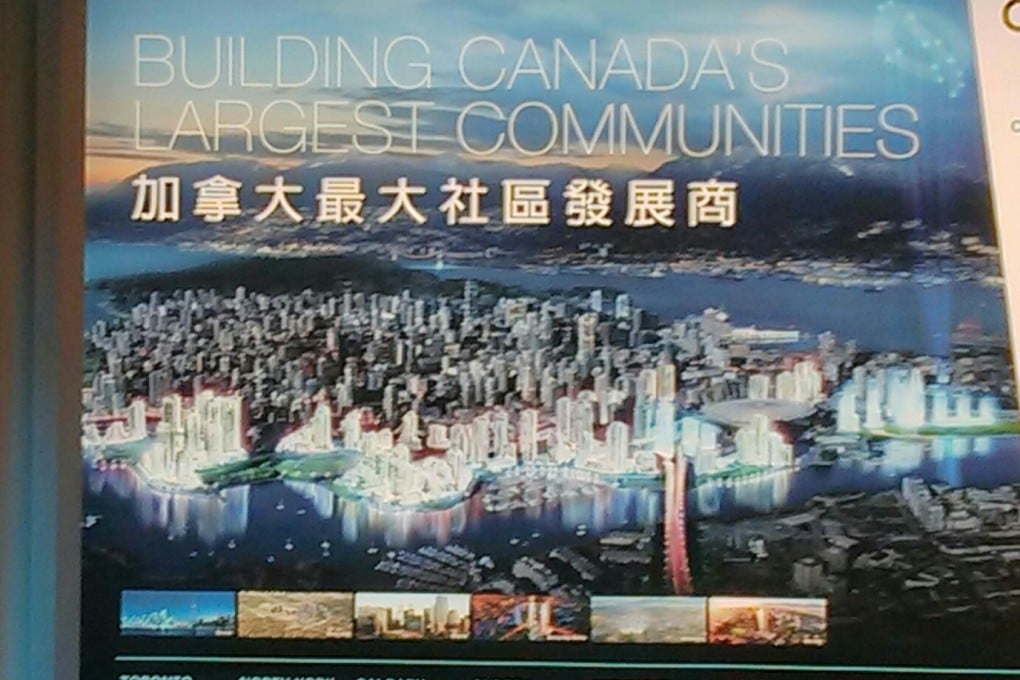The Hongcouver | Does Chinese signage at Vancouver airport send the wrong message?
Some Richmond residents fear 'politically motivated ethnic groups are pushing their cultural agenda upon Canada'

Canada’s two official languages are English and French, although that might surprise visitors to Richmond, the Vancouver satellite that is the world’s most-Chinese city outside Asia.
Campaigners who want to promote the official languages say the situation now extends beyond Number 3 Road, and that visitors to Canada need to be reminded of the official languages as soon as they step off their flight in Vancouver. In their sights are the large Chinese-language advertisements for real estate developers and others that greet new arrivals at Vancouver International Airport in Richmond.
“[The airport advertisements] are important because exiting the airport is for thousands their first introduction to Canada,” said Brad Saltzberg, British Columbia regional director for activist group Putting Canada First. “Rather than some emblems of our country – our flag, or pictures of Whistler, or mounties - we are greeted by the Chinese language. These are large ads. Some are in Chinese only, with no English…it just doesn’t reflect Canadian culture and history. It’s a promotion for Chinese developers.”
He added: “It’s a poor and misleading introduction for what Canada is all about.”
Saltzberg’s group has been lobbying municipal authorities, various government officials and the managers of the signage sites to have the advertisements replaced.
